ICI International Curriculum Forum║Professor Alexandre Ventura: Shadow Education in Latin America: The Case of Brazil
2021-12-16
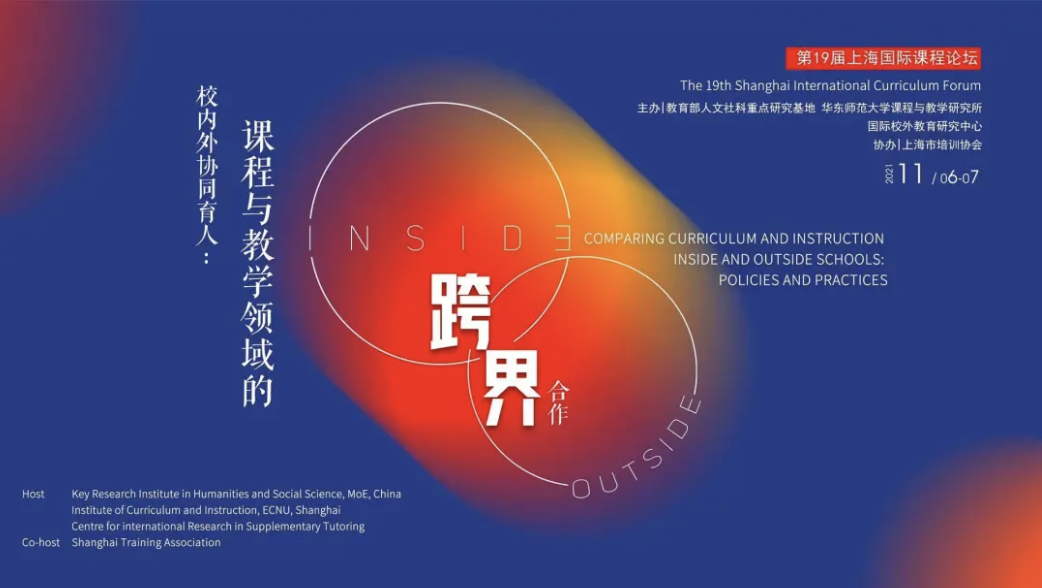

In order to promote the development of collaborative education inside and outside schools, and the standardized and orderly development of out-of-school training industry, The Centre for International Research in Supplementary Tutoring (CIRIST) of ICI, and Shanghai Training Association held a forum entitled “Comparing Curriculum and Instruction Inside and Outside Schools: Policies and Practices” from Nov. 6 to 7, 2021.


Professor Alexandre Ventura
Department of Education and Psychology, University of Aveiro, Portugal

Main Content of the Report

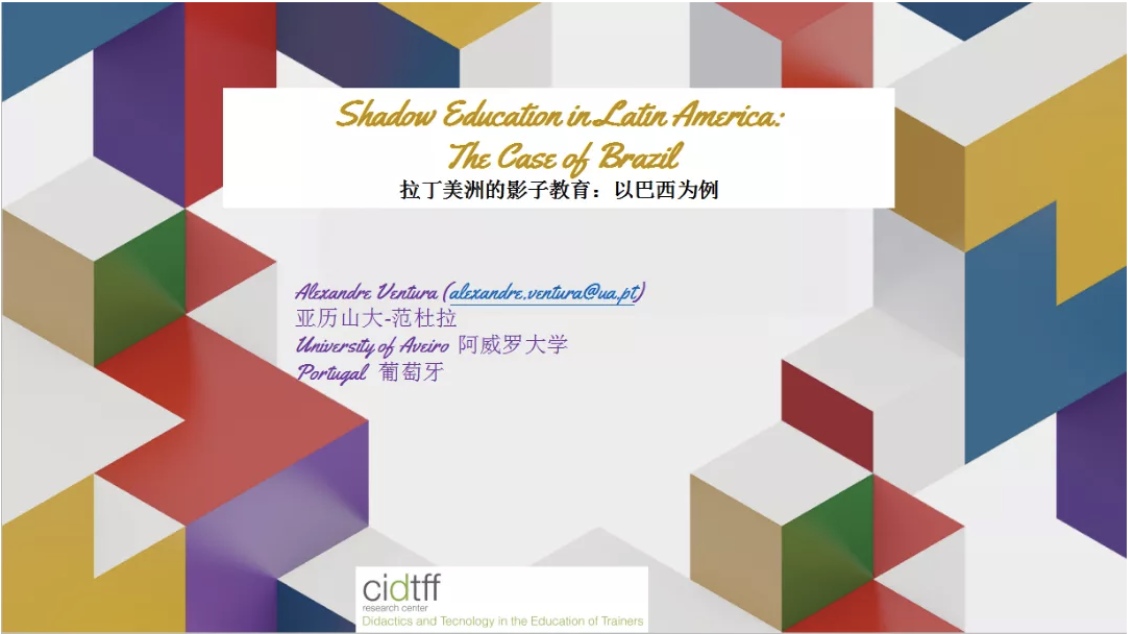

Good afternoon, everyone, I am Alexandre Ventura, from University of Aveiro in Portugal. I have been committed to the research on shadow education, paying attention to the needs of shadow education, as well as the impact of shadow education on students’ learning, and on the policy regulatory system.
Today I will share some information and basic ideas about shadow education in Brazil.
Brazil is a large country, it occupies almost the whole of Latin America. This poses many challenges for Brazil, mainly in terms of meeting the needs of learners in the education system.
I will share some facts and data about Brazil, with particular emphasis on social inequality in Brazil. Education is a way to promote social development, create wealth and promote the development of students and families, this inequality will impact greatly on the allocation of educational resources.

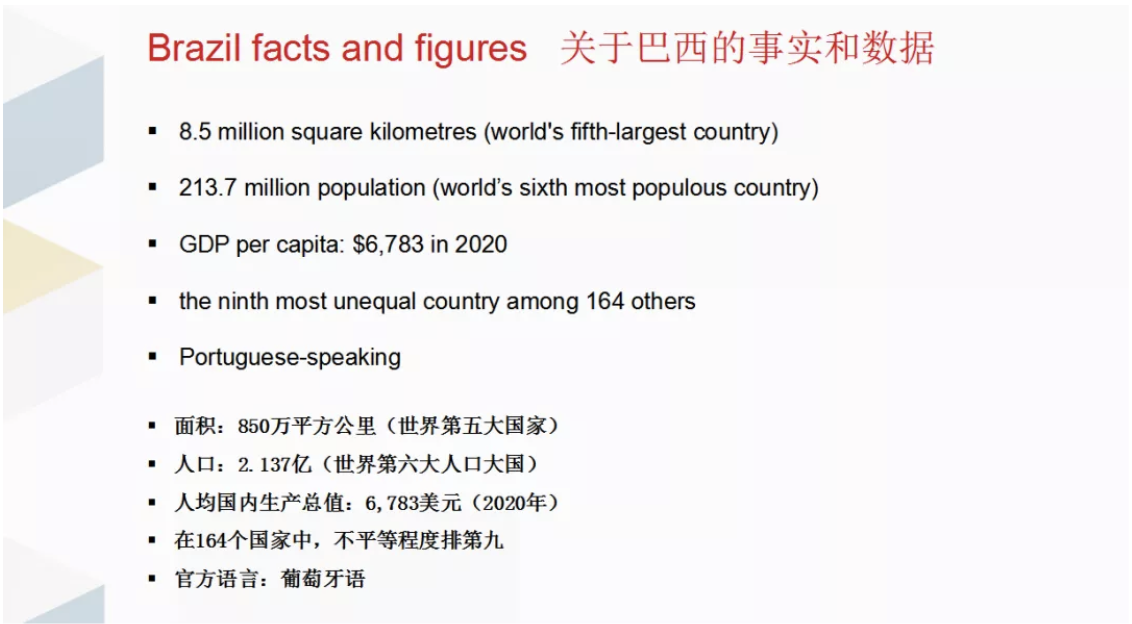

In fact, for Brazil, the structure and dynamics of its education system, and the relationship between the education system and social reality and state rule have become extremely complex.

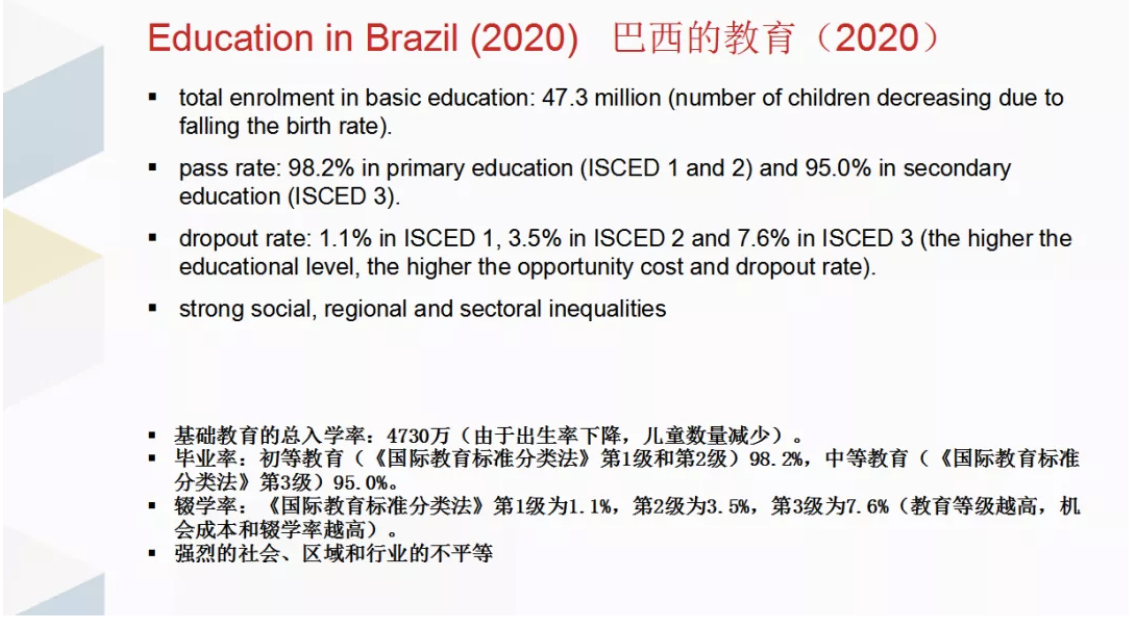

I going to talk about teacher training in Brazil, in that it is closely related to the education system of shadow education, as well as to the quality of education perceived by consumers, students and families. One of the characteristics of teacher training in Brazil is the emphasis on teaching skills.In Brazil, the attractiveness of the teaching profession is declining and has an impact on the quality of teaching, which is not an exception, but a global trend.

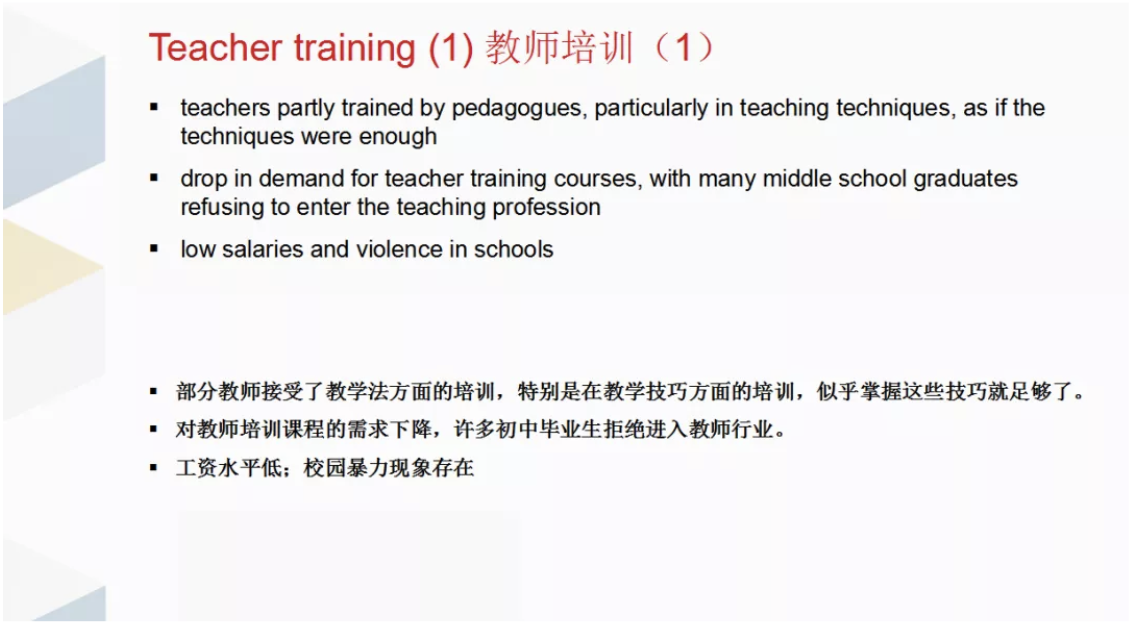

However, the average enrollment ratio for higher education is so low that most people cannot afford it. But now, the teaching profession has become a channel for the promotion of Brazilian social classes.

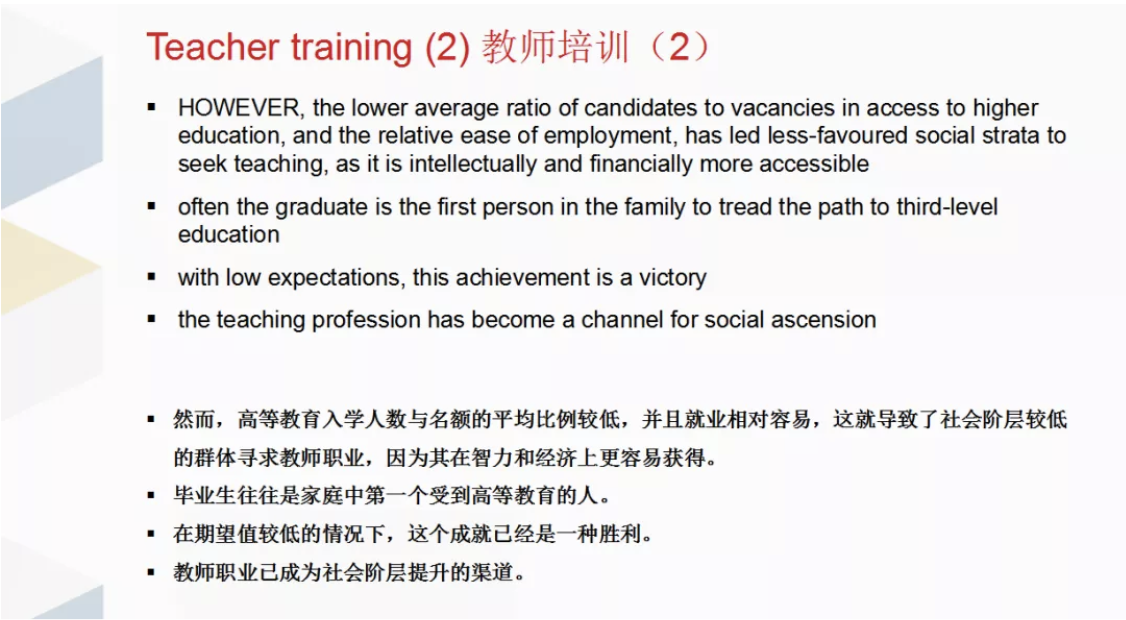

This phenomenon has caused some problems. The teaching profession is mainly composed of people at the bottom of the society. The quality of education will be affected.



Shadow education is a long tradition in Brazil, the current reality is that shadow education is no longer a simple means of promoting success. The unequal education system of Brazilian society complicates the relationship between private and public supply of education, while shadow education aggravates social injustice.

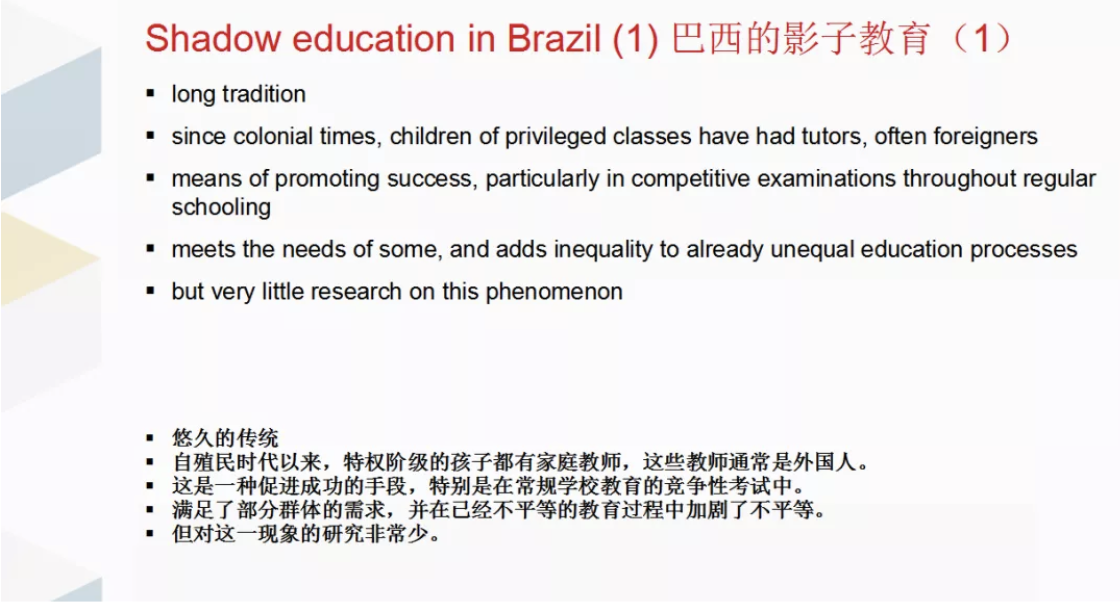

The most well-known extracurricular tutoring in Brazil is “cursinhos”, it mainly provides targeted training for students who will take college entrance examination. The purpose is to enable students to achieve a variety of life choices in the future.

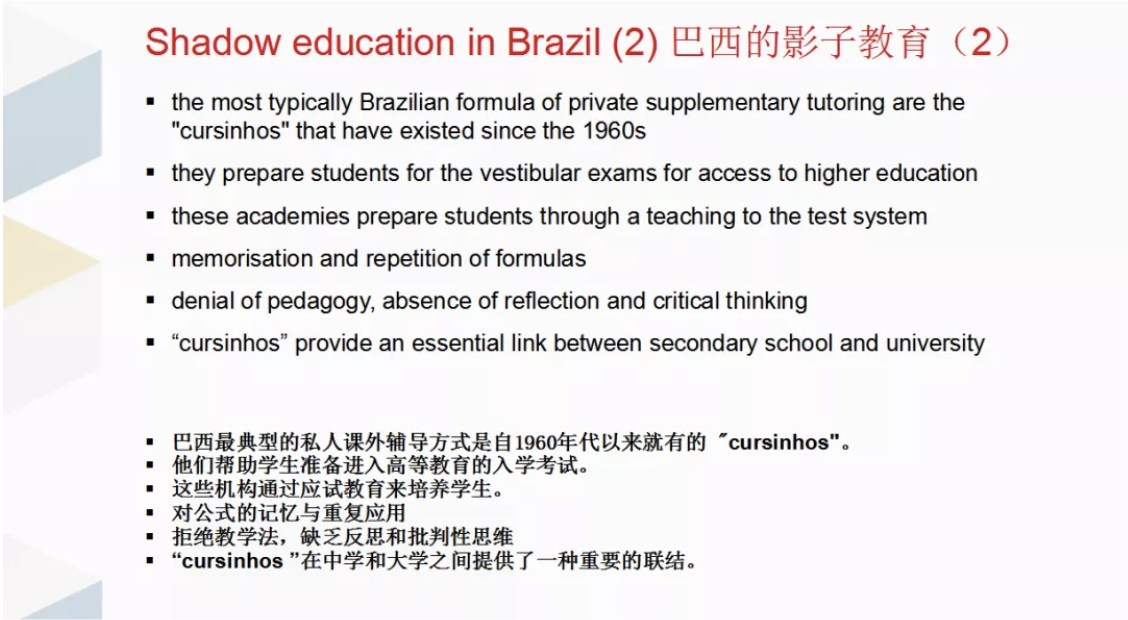

Next, I will focus on some research to let you know what these studies have found on shadow education.
The first study surveyed two secondary schools in Brasilia (a public school and a private school), the students usually receive free tutoring at school. As a result, they have received additional compulsory education support in school and do not have to pay for it. According to this study, there is a particular trend that young boys are more likely to participate in extracurricular tutoring because traditionally, boys are less involved in school education and they are less focused than girls. Therefore, they need these extra tutoring. What’s more, families in private schools spend much more money on their children than families in public schools, further increasing the social capital that their children have from family origins, coupled with extracurricular tutoring, this intensifies competition in Brazil.

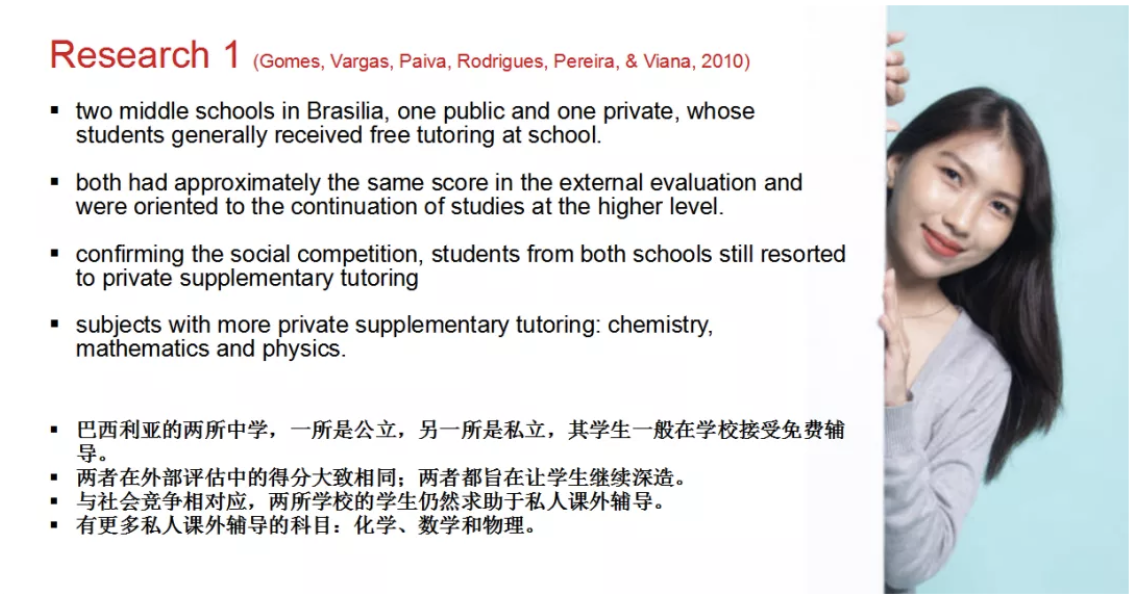



The second study in Brazil mainly investigated the characteristics and highlights of private tutoring courses and the main reasons for students’ participation in tutoring. The study found that students and parents are satisfied with the results of their investment. They continue to participate in tutoring and continue to pay for these courses. They admit that tutoring enables them to succeed in the challenging exams they need to pass. You can see from these data that students think their time, effort and investment in these courses are reasonable.

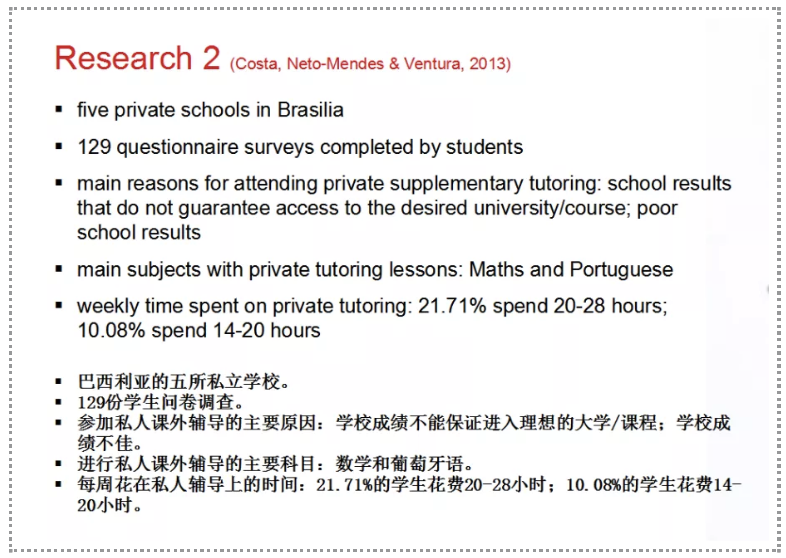

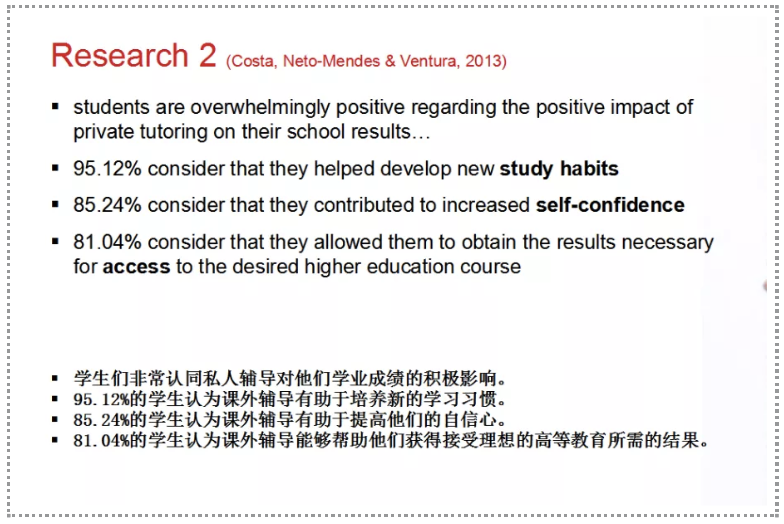

In this context, I would like to say that “balance” is quite important. I believe that, especially in a large country like Brazil, given Brazil’s history, reality and Brazilian mentality, it is impossible to control the demand for extracurricular tutoring. As you have noticed, students and parents have a positive view of shadow education, and they can increase their competitive advantage to enter ideal courses and universities, which is impossible to suppress.

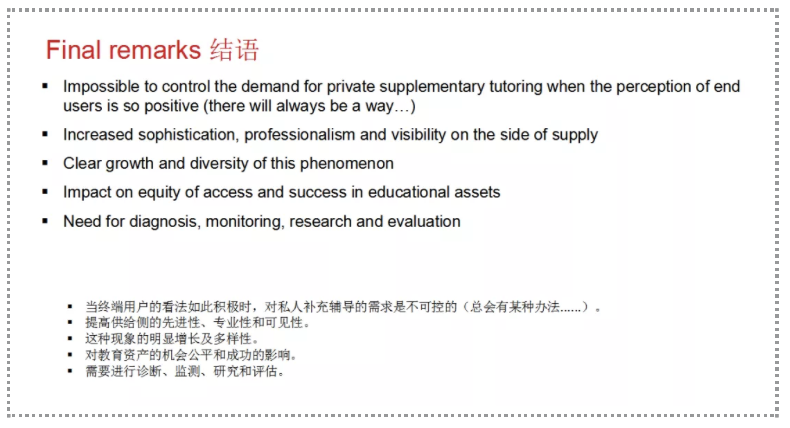

It is necessary for us to diagnose this in order to better understand the reality and monitor the system, which is not entirely up to the government. It is necessary for us to do more research and evaluation. I have participated in some studies and tried to work with colleagues from different countries to make a modest contribution to the research on shadow education in Brazil. Thank you!